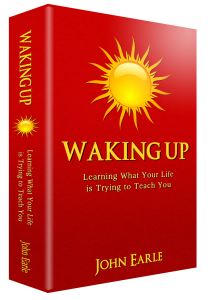Rumi says that, when we judge others, that we are just “polishing the mirror”. In other words, something that we feel is less than divine in ourselves is being reflected back to us. Recognizing this phenomenon is a useful tool in discovering and rooting out unskillful parts of our personality, as well as self-judgment, and non-serving beliefs. Using the mirror successfully requires awareness of the reflection phenomena then letting go of the ego and taking personal responsibility for our judgment. The moment you are aware that you are judging others you are at the threshold of a great opportunity for self-discovery and personal growth. This understanding is very helpful for developing compassion and reducing fear and stress. For more please review letting go of the judge.
There is another mirror we can use to make interesting discoveries about our inner world: the mirror of people we admire such as a guru, the mentor, the rock star, a political figure, or an author or a physical hero. It can be useful to ask ourselves why we are attracted to particular characters, especially when they raise strong emotions such as fear and anger or encourage negative behavior like indignity and blaming. Again, using awareness and personal responsibility, we can investigate the emotions and feelings that are aroused by our heroes. What emotion is your admiration, or blind faith based upon? What qualities do you admire? Why are you attracted to a particular person? Do you overlook or deny any obvious questionable or unskillful behavior they exhibit? Listing their qualities can be tricky. For instance, we might think we are admiring someone’s strength but, when we look more closely, what we really are attracted to is their anger, their fire. How is our fire doing? Our passion? Are we angry and perhaps projecting, just living through them? Do we have unexpressed anger beneath the surface? We might find that we admire someone’s spirituality but, when we look deeper, we find what actually attracts us is our own fear of confrontation and anger. Maybe we admire someone who we think is strong and takes care of themselves but, over time, we discover they are actually a narcissist who always put themselves first. Do we use their model of behavior to justify our own selfishness? By examining our attractions to our personal heroes we can learn much about ourselves. We can also become aware of how we can be manipulated by people plugging into our inner belief system. May politicians and leaders are adept at this. When we become a fanatical follower of some guru or leader there is always some big emotional event supporting our attraction. This is not to say that we cannot be attracted to that which is good. What we need to watch out for is blind acceptance or worship; which we don’t question carefully. As ever, we need to stay aware and use our discernment, especially when we find ourselves passionately embracing some personal hero.
The Omega Institute in Rhinebeck New York offers over 300 workshops in the summer with many famous personalities teaching. When my wife and I worked at Omega one season we encountered many popular teachers whose personal life was quite different from their public life. Some were venal and trolled for sex, and others were greedy, trying to turn everything into a revenue stream, worried about the money. Others, behind the scenes, were arrogant even though their path was compassion. Many of these teachers were greatly admired, but their lives were basically, I am sorry to say, not congruent with their message. It seems a high percentage of evangelical preachers, especially those with big congregations or TV audiences, enjoy the sexual ministrations of congregants even when married. Gurus often fall from grace by pursuing sexual escapades.
The lesson here is that we are all human, and very few of us rise to the level of sainthood. It seems the ego can more easily corrupt the celebrity than the simple practitioner. While it is very disappointing, even traumatic, to discover that a teacher who you really admire has some rather unpleasant and egotistical faults there is no need to judge them. That road goes nowhere. Instead, we need to review our relationship with the teacher. What first attracted us or, on further examination, was it really something different or deeper than we thought? Perhaps it was something we thought we needed that might not be such a great course after all. Because we give away our power to these teachers, we need to make sure they are worthy! And rather than judge them harshly, don’t throw away the baby with the bathwater! Sometimes the there is great wisdom mixed in with the rest. Rather than judgment, use your discernment. The point is, how we react or respond to a leader, a guru, or any other mentor or hero tells us a great deal about ourselves.
It is not my habit to recommend teachers. Nor do I disparage anyone’s choice of a hero or guide. Each of us learns in our own way, in our own time and through personal experiences. What I am saying is that no matter where we are on the path, each of us can use the process of admiring or following a charismatic figure for personal investigation and growth.
One more thing: you have perhaps heard the expression “kill the guru.” What this means is that when you realize that you have learned all you can from a teacher, or that you have successfully integrated his or her message, you are free to move on. You are not required to stay in the flock and, in fact, this can be damaging or distracting from your personal growth sometimes. There is always more to learn and practice as well as many paths. As long as you discern that love is the core message in a teaching, and there is loving action being taken, you should be safe! Still, it is good to remember that your choice of hero can be a very instructive and useful mirror about what is happening in your inner world.



 Using four, powerful but simple strategies, learn what the challenging stories in your life are trying to teach you.
Using four, powerful but simple strategies, learn what the challenging stories in your life are trying to teach you. 


No comments yet.